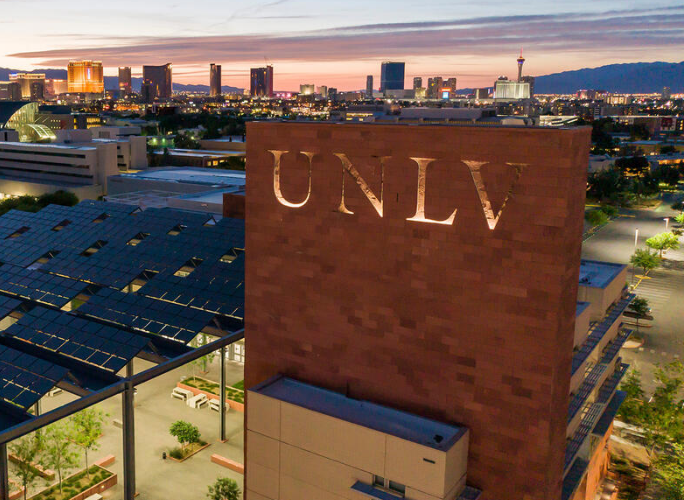For the first time in its three-decade history, the University of Nevada, Las Vegas’ International Gaming Institute has formed an official Executive Director’s Advisory Board—pulling in some of the gambling industry’s top minds to tighten the bond between academia and the business of betting.
The new board isn’t just a PR exercise. It’s a move that could shift how gambling research is shaped and delivered—especially at a time when the stakes in the global gaming landscape are getting higher, and faster. With decades of international influence under its belt, IGI seems to be doubling down on relevance, connection, and innovation.
Why IGI’s timing couldn’t be more interesting
Gaming, in almost every corner of the world, is in flux. Sports betting is booming in North America. Online gambling is exploding in Europe. Regulatory attitudes are softening in parts of Asia. It’s a scene packed with change—and opportunity.
At the heart of it sits IGI, a globally respected academic centre in Las Vegas, which has advised policymakers and trained executives in over 50 jurisdictions. So why now?
Well, because the industry’s changing too quickly for any one institution to stay influential by just looking inward.
“We’re not simply looking to study the industry from the outside anymore,” said one IGI insider familiar with the institute’s recent internal discussions. “This is about being in the room, part of the conversation, and sometimes, shaping it.”
And here’s where the board comes in.

Who’s in the room now?
The newly formed Executive Director’s Advisory Board is more than just symbolic. It’s a cross-section of senior voices drawn from across the gaming world—think CEOs, tech innovators, regulatory consultants, and thought leaders.
Brett Abarbanel, who took the reins as IGI’s Executive Director in 2023, called the board members “accomplished experts” and said their insight will help bridge the space between academia and commercial reality.
Here’s a breakdown of what this means in practice:
-
Board members will advise on research themes and emerging issues.
-
They’ll connect IGI to fresh partnerships in tech, policy, and investment.
-
Their networks can bring new opportunities for IGI grads and students.
-
They’ll help the institute keep its edge in a fast-evolving market.
In short: they’re not just advisors—they’re amplifiers.
A rare blend of academia and commercial realism
Academic institutions often struggle to stay relevant in fast-paced industries. That’s not a secret. Research papers can take months—years even. Meanwhile, tech and commercial shifts can render them outdated in weeks.
IGI’s move looks like an attempt to sidestep that trap.
It’s positioning itself as a hub not just for theory, but for real-world, practical insight. By setting up this board, the institute seems to be saying: we want to stay current, and we want your help to do it.
Abarbanel’s leadership reflects that mood. Known for her own work on esports, gambling behaviour, and data ethics, she’s spent years blending rigorous academic thinking with public impact work. The board now gives her a louder megaphone—and more ears in the room.
One sentence here, for rhythm.
Quick glance: What IGI has done so far
While the board is new, IGI isn’t. Founded in the early 1990s, it’s become a go-to resource for regulators, researchers, and gaming operators. Here’s what they’ve already accomplished:
| Focus Area | Achievements |
|---|---|
| Global Reach | Advised in over 50 jurisdictions including Singapore, Spain |
| Executive Education | Trained over 3,000 professionals from six continents |
| Research Contributions | Published on gambling ethics, harm reduction, esports, AI use |
| Strategic Partnerships | Worked with WHO, Nevada Gaming Control, international NGOs |
That’s not just academic influence. That’s boots-on-the-ground, global relevance.
Is this the new gold standard for gambling education?
Maybe it is. Or maybe it’s at least the right step in that direction. What IGI is doing mirrors a growing trend in higher education—bringing in real-world players to co-steer academic ships.
It also reflects a shift in how gambling is being discussed globally.
Once seen mostly as a moral or financial risk, gambling is now being treated with more sophistication. The conversation has moved from prohibition to regulation. From tax windfalls to public health. From stigma to science.
By making space for commercial voices inside an academic institution, IGI might be modelling a new kind of collaboration—one that’s thoughtful but fast, grounded but global.
What could this mean for Nevada—and beyond?
Las Vegas isn’t just a gaming city—it’s a testing ground. What starts in Nevada often spreads to the wider U.S. gambling market, and then internationally.
So, this new board could have ripple effects.
For students, it could mean sharper courses, better internships, and faster access to the front lines of the business.
For regulators and operators, it offers a place to exchange ideas outside of conferences and trade shows—somewhere slower, quieter, but no less influential.
And for policymakers, it’s a reminder that research isn’t just about theory—it can be a tool for shaping smarter rules, safer practices, and more sustainable models.
That’s a lot of potential baked into one advisory board.
Leave a Reply